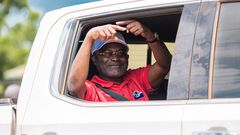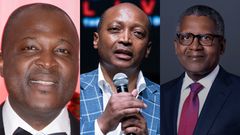As tension and transformation continue to define politics and society across West Africa, this week’s news cycle has brought a host of stories that resonate far beyond Ghana’s borders. From high-stakes political battles to legal tangles and concerns around governance, the narratives shaping Ghana right now offer valuable context for Nigerians and the broader African community. Here’s a comprehensive rundown of the week’s developments and why they matter for the region and the continent at large.
1. Chairman Wontumi, Akonta Mining and Associates Face Illegal Mining Charges
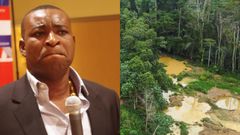
Ghana is once again in the spotlight over the issue of illegal mining—known locally as “galamsey.” Bernard Antwi Boasiako, widely recognized as Chairman Wontumi and Ashanti Regional Chairman of the New Patriotic Party (NPP), has been officially charged by authorities for allegedly allocating mineral rights without state clearance.
Joining Wontumi in the dock are Kwame Antwi, a top official at Akonta Mining, and the company itself. Recent court filings from October 6, 2025, indicate that the trio faces a total of six charges. Each entity or individual, reports say, is answering two separate allegations.
The accusations, referencing Ghana’s Minerals and Mining Act (Act 703) as amended, primarily concern the assignment of mining rights absent proper approval and facilitating mining activities conducted without a license. Chairman Wontumi’s appearance at the High Court in Accra marks a significant escalation in an ongoing controversy that has rocked both the political and environmental sectors in Ghana.
Illegal mining continues to be a colossal challenge across several West African countries, including Nigeria’s own gold belts in Zamfara and Osun, where resource control and environmental degradation spark similar debates. This latest case underlines a wider regional struggle to enforce mining regulations and safeguard both local communities and state revenues.
Local environmental activists in Ghana stress the long-term impact of unregulated mining, noting not only ecological threats but also risks to public health and livelihoods. The high-profile nature of this case is expected to test the Ghanaian legal system’s resolve and may set the tone for anti-corruption and resource governance efforts across the region.
2. Domelevo Accuses Legal Luminary Ayikoi Otoo of Submitting Fake Evidence in CJ Probe
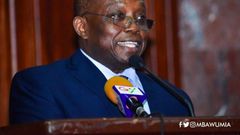
Auditor General Daniel Domelevo
In another development stirring Ghana’s political and legal landscape, Daniel Yao Domelevo, former Auditor-General and member of the committee that reviewed the removal of ex-Chief Justice Gertrude Torkonoo, has leveled serious allegations at renowned lawyer Ayikoi Otoo. Domelevo claimed that Otoo submitted forged documents as evidence during the panel’s probe.
Domelevo’s assertion, which came during an interview on The KSM Show, followed criticism by Otoo, who had alleged Domelevo did not intervene during what he described as an unfair process. Specifically, Domelevo pointed to a letter submitted by Otoo—purportedly signed by the Judicial Secretary—as being a forgery.
Analysts from both Ghana and Nigeria recognize this as a test of judicial integrity and the seriousness with which allegations of misconduct in top offices are handled. Across Nigeria, similar disputes involving high-level judicial appointments and removals often draw public scrutiny and underscore the importance of due process and transparent investigations in all West African democracies.
Legal experts speaking on Channels TV in Lagos noted that such controversies can undermine public trust if not thoroughly resolved, reinforcing the shared need across the region for robust mechanisms to uphold the rule of law.
3. Kennedy Agyapong Poised to Lead NPP Primaries According to Latest Poll
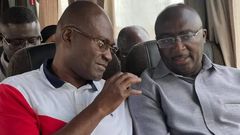
With political anticipation building, a pivotal poll conducted by Pan-African research outfit Sanity Africa suggests that Kennedy Ohene Agyapong is on track to secure the New Patriotic Party’s (NPP) presidential nomination ahead of upcoming elections. The poll, released in October 2025, projects Agyapong leading Dr. Mahamudu Bawumia—the party’s 2024 flagbearer and former Vice President—by a decisive 53.1% of delegate support.
This latest poll reflects a 1.7% increase in Agyapong’s popularity since the organization’s previous survey in July, signaling growing confidence in his candidacy among NPP delegates nationwide.
For Nigeria, where clashes over party primaries often become flashpoints for broader national debate, Ghana’s experience mirrors familiar struggles over intra-party democracy, political endorsements, and public expectations for leadership renewal. Political scientists from the University of Ibadan highlight that the trend of ‘outsider’ candidates making strides is evident across West Africa as electorates seek fresh approaches to governance and reform.
Historically, Ghanaian party primaries have been closely watched by the international community, serving as bellwethers for the continent’s democratic health. If confirmed, Agyapong’s emergence could set the stage for a dynamic 2026 election season with regional ripples.
4. Security Concern: Missing 40,000 Rounds of Ammunition Raise Alarm in Ghana
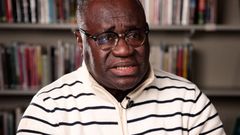
A revelation with possible ripple effects across West Africa has come to light: Professor Kwesi Aning, a respected security analyst, has voiced major concerns over 40,000 rounds of missing ammunition from Ghana’s Ministry of Defence. These munitions reportedly vanished just before the NPP government exited office in January 2025.
The missing ammo saga reportedly began with disclosures from the late Defence Minister, Dr Edward Omane Boamah, who, prior to a fatal helicopter crash, revealed that massive quantities of government procured munitions had been transferred out of military custody and could not subsequently be accounted for. An internal probe has since been launched.
Speaking with Adom News, Professor Aning described the incident as “deeply troubling and a potential threat to national peace,” a sentiment likely to strike a chord in Nigeria, where insecure arms storages have frequently led to larger security crises—especially in the North-East and Middle Belt regions.
The incident underscores persistent challenges surrounding arms management behind closed doors in many African governments, and highlights the critical need for independent oversight and accountability to prevent security lapses that can fuel unrest.
Ghana’s investigation is being closely monitored by neighboring countries as a possible test case in preventing state resources from falling into the wrong hands. Many experts say that lessons here could inform policy reform in other West African states struggling with arms proliferation and insecurity.
5. GTEC Invalidates Ing. Ken Ashigbey’s Use of ‘Dr’ Title Over Degree Dispute
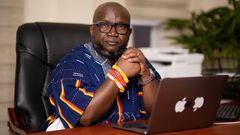
Questions over improper credentialing among public officials and business leaders have surfaced yet again, this time involving Ing. Ken Ashigbey, CEO of the Ghana Chamber of Mines. The Ghana Tertiary Education Commission (GTEC) has directed Ashigbey to halt the use of the “Dr” title, following revelations that his Doctor of Business Administration (DBA) certificate from the Swiss Management Centre (SMC) is not recognized by GTEC standards.
A statement issued October 10, 2025, by GTEC’s Director-General Professor Ahmed Jinapor Abdulai outlined their findings. While Ashigbey did present both a certificate and a transcript, GTEC found discrepancies: the certificate referenced ‘Swiss Management Centre (SMC),’ whereas the accompanying transcript listed ‘Swiss Management Centre (SMC) University.’ Checks also noted that SMC now operates under a single name matching only the certificate, raising concerns about institutional consistency. The commission highlighted the nine-year study period for the DBA as also atypical.
The issue of degree mills and unaccredited institutions is hardly unique to Ghana. Nigerian regulatory bodies, such as the National Universities Commission (NUC), routinely caution against fraudulent qualifications, underscoring the regional need for vigilant academic oversight.
GTEC’s move, according to higher education analysts in Accra and Abuja, is a signal effort to reinforce the credibility of professional and academic titles across the region—helping ensure that only authentic qualifications shape public and private sector leadership.
6. Kennedy Agyapong Gets Top Slot on NPP Ballot as Primaries Near
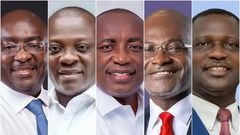
As the NPP presidential primaries approach their climax, the party held its ballot draw for candidate positions on January 31, 2026. Kennedy Ohene Agyapong, former lawmaker for Assin Central, secured the coveted first spot. Other slots went to Dr Bryan Acheampong (second), Dr Mahamudu Bawumia (third), Dr Yaw Osei Adutwum (fourth), and Ing. Kwabena Agyei Agyepong (fifth).
The event, which took place in Accra’s Asylum Down, was closely watched by party faithful and rival political camps alike. In Nigeria, where party primaries often attract as much public intrigue as general elections themselves, the fairness and transparency of these proceedings are seen as vital to public trust.
With key opposition figures contesting Ghana’s ruling party in 2026, the outcome of these primaries is set to shape policy debates and regional relationships, particularly in areas such as trade, security, and migration.
Conclusion
This week’s stories out of Ghana offer both key lessons and urgent talking points for West Africans. From the persistence of illegal mining to political and academic integrity, as well as mounting security concerns, these developments show that the challenges facing Ghana are mirrored across Nigeria and the broader region. In a context where leadership, transparency, and resource management are more critical than ever, staying informed and involved is essential.
Do you think Nigeria and other African nations are learning the right lessons from Ghana’s approach to governance, security, and transparency? What reforms do you believe will bring the most positive change? Drop your opinion in the comments section and don’t forget to follow us for continuous updates and thoughtful analysis of news shaping West Africa and beyond.
Have a hot news tip, inside story, or issue you’d like to see on our platform? We want to hear from Nigerians, Ghanaians, and all our West African readers! If you have a story to share or sell, reach out via email at story@nowahalazone.com and get your perspective amplified.
Need general support? Contact us at support@nowahalazone.com. Don’t miss a beat with us—follow our lively community on Facebook, X (Twitter), and Instagram for real-time news, updates, and conversation. Let’s keep the dialogue going—your voice matters here!

